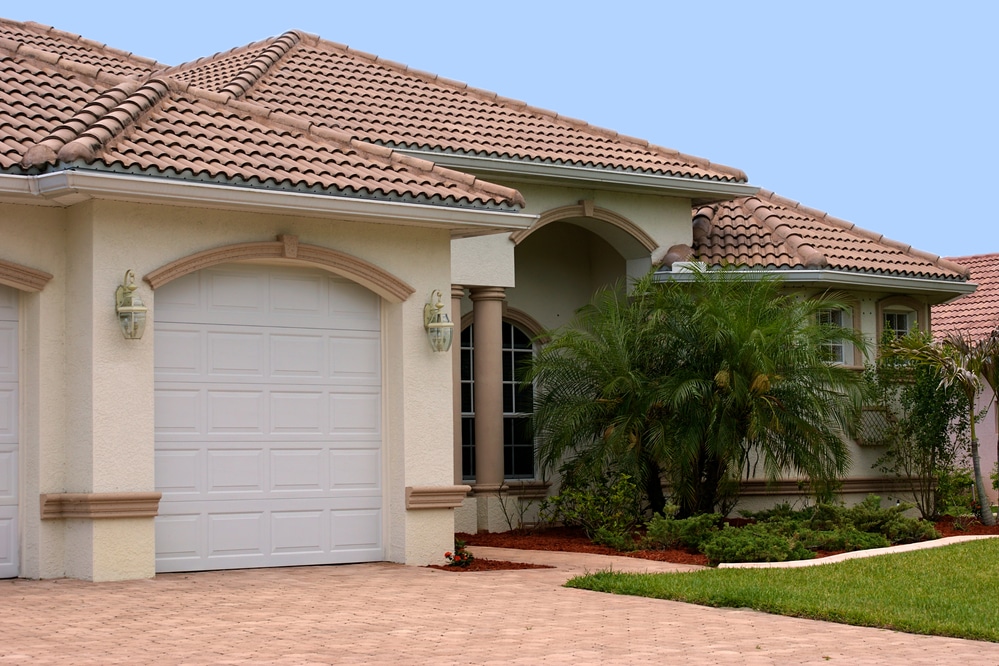Having a solid and sturdy roof is vital in a place like Florida that’s exposed to a lot of strong winds and storms. In addition, there’s also the intense heat and sun rays to handle. This is why you need to spend time thinking about the right type of roof that can hold up well in the face of these weather elements. Keep reading to understand more from Jacksonville roofers.
Types of Roofs to Consider
The materials used for your roofing will go a long way in determining its longevity. The more common material is asphalt shingle, and others to consider are clay, concrete, slate, wood, and metal.
Shingle Roofing
One of the most popular options, shingles are easy to maintain, affordable while blending in well with the design of your home. There’s such a broad variety of colors to choose from so you can be sure to find one that complements your home. One downside to note is that they’re lighter in weight and hence, can blow off during a heavy storm. However, they’re much easier to find when you need to replace specific shingle tiles.
Clay Roofing
Clay roofing, or the use of clay tiles, allows for long-lasting longevity due to the material’s general durability. With the capacity to last up to 100 years, this material requires less maintenance in the long run. This is one of the reasons why it’s one of the most common roof types in Florida.
Clay has a high water shedding capability, which makes it great for homes that are in wet areas. In the unfortunate event of a fire, clay tile has one of the highest fire resistance ratings, granting homeowners another layer of protection.
Unfortunately, clay can loosen and crack so you’ll need to inspect them regularly and be ready to replace tiles.
Concrete Roofing
Another durable material to consider, concrete is less prone to cracking and is an excellent shield against the elements. It is also not flammable and can hold its own against water damage.
However, it is not as long-lasting, with a 50-year lifespan on average. In addition, the heavier weight of concrete needs to be considered, with only structurally sound homes being able to utilize concrete.
Slate Roofing
Slate tiles can be an excellent alternative to clay, as they are both quite similar. It is very durable in the elements and can last for a really long time as well. People also appreciate the variety of colors to choose from.
You do have to consider its weight and vulnerability to cracking. Should a replacement be needed, it can also be hard to find the same shade in the future. Given how heavy slate is, your house will need to have an extremely sturdy structure.
Wood Roofing
A popular option, wood roofing can certainly bring that island vibe to any home. Wood shingles, in particular, are great when faced with saltwater. The added breathability is also a plus, and you can do your part for the environment with this eco-friendly solution.
With its low costs, there are some caveats involved. Regular sealing is needed to prevent any rotting or leaks, with such maintenance work being time-consuming and costly. It’s also very flammable, and can even be blown off by strong winds. Replacements will always stand out as well, due to the different colors.
Metal Roofing
Metal roofing is a popular choice, especially in areas prone to storms. It is durable against rain and wind and keeps temperatures in check by reflecting the sun rather than absorbing. In fact, metal roofs can withstand winds of up to 160-mph, making them a common option here in Florida.
Metal roofing comes at a relatively high cost. Homeowners will also have to deal with the noise during rain or with other elements, as metal does not readily absorb sound unless insulated.
Conclusion
Deciding the best kind of materials for your roofing isn’t a decision to make lightly. Knowing the different types of roofing can help you make your choice. If you need more specific and professional advice, don’t hesitate to call us so we can help you decide what’s best for your home.


Pingback: Metal Roof vs. Shingles Cost – legionroofingfla.com
Pingback: HOW SUSTAINABLE A METAL ROOF REALLY IS? – legionroofingfla.com
Pingback: WHAT SHOULD I CONSIDER STORM DAMAGE ON MY ROOF? – legionroofingfla.com